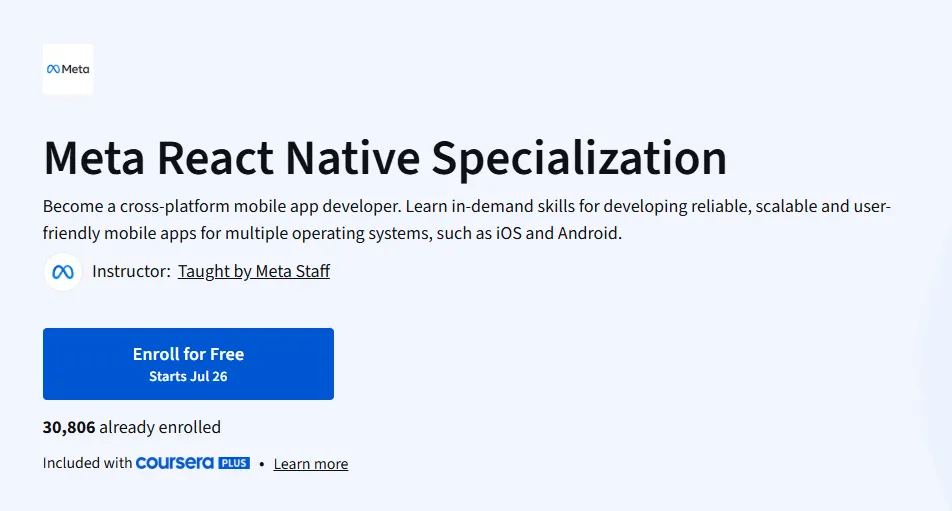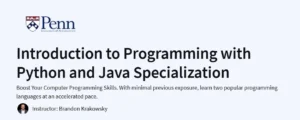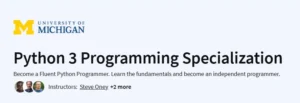Meta Android UI Development Specialization
A hands-on, UI-focused Android specialization by Meta for aspiring mobile interface developers.
What will you learn in Meta Android UI Development Specialization Course
Design and develop responsive, interactive user interfaces for Android apps.
Apply Material Design principles and UI best practices.
Utilize Android Studio to implement real-world mobile interfaces.
Build fully functioning apps with smooth navigation and accessibility features.
Program Overview
Course 1: Introduction to UI/UX Design
⏱️ 3 weeks
Topics: UI/UX fundamentals, design thinking, wireframes, user flows.
Hands-on: Create basic mockups and user journey maps.
Course 2: Programming User Interfaces
⏱️ 4 weeks
Topics: Views, layouts, constraints, styling, touch interactions.
Hands-on: Build interfaces using XML in Android Studio.
Course 3: Advanced UI Development
⏱️ 4 weeks
Topics: Custom views, animations, RecyclerViews, navigation patterns.
Hands-on: Create dynamic and reusable UI components.
Course 4: Capstone Project
⏱️ 5 weeks
Topics: Full UI development of a mobile app based on a given prompt.
Hands-on: Build and present an end-to-end UI with documentation and testing.
Get certificate
Job Outlook
High demand for Android developers with UI/UX skills.
Entry-level salaries range from $60,000 to $90,000 in tech hubs.
Opportunities in mobile app companies, startups, freelance markets.
Java-based Android development remains widely used across industries.
- Endorsed by Meta
- Uses Android Studio for real projects
- Strong hands-on focus
- Focused only on Java, not Kotlin
- No backend integration included
Specification: Meta Android UI Development Specialization
|
FAQs
- Basic programming knowledge, especially in Java or Kotlin, is helpful but not mandatory.
- The course introduces Android development concepts step-by-step for beginners.
- Learners gradually learn to build user interfaces and interactive apps.
- Hands-on exercises guide learners through real Android UI projects.
- Beginners can build foundational skills in mobile app development confidently.
- Learners create functional Android applications with interactive user interfaces.
- Exercises cover layouts, navigation, widgets, and design patterns.
- Projects simulate real-world mobile development scenarios.
- Step-by-step guidance ensures learners understand best practices in UI design.
- Hands-on projects help learners build a portfolio to showcase Android development skills.
- Learners work with Android Studio and Jetpack components.
- Tools for debugging, testing, and UI optimization are introduced.
- Practical exercises demonstrate how to create responsive and accessible UIs.
- Knowledge gained is applicable for real-world app development projects.
- Skills prepare learners for both personal projects and professional roles in mobile development.
- Android is one of the most widely used mobile platforms worldwide.
- Skills in UI design and development improve employability for mobile app developer roles.
- Hands-on projects demonstrate practical ability to potential employers.
- Knowledge complements backend and full-stack development skills.
- Completing the course shows readiness to contribute to professional Android projects.
- Estimated completion is around 4–6 months at a part-time pace.
- Weekly effort of 5–7 hours is generally sufficient for lectures and hands-on projects.
- Regular practice in building UIs and debugging applications reinforces learning.
- Revisiting exercises or experimenting with additional features may require extra time.
- Consistent engagement ensures learners develop both conceptual understanding and practical Android development skills.





